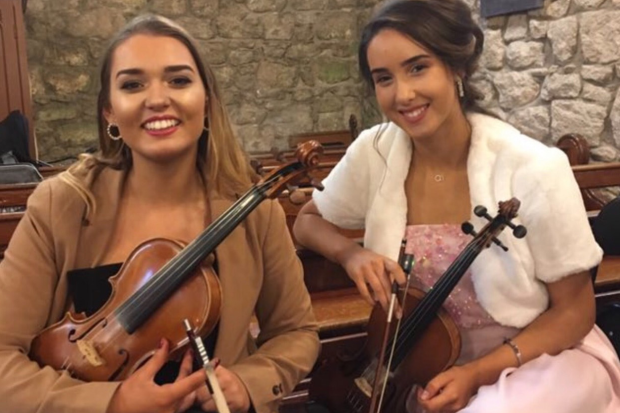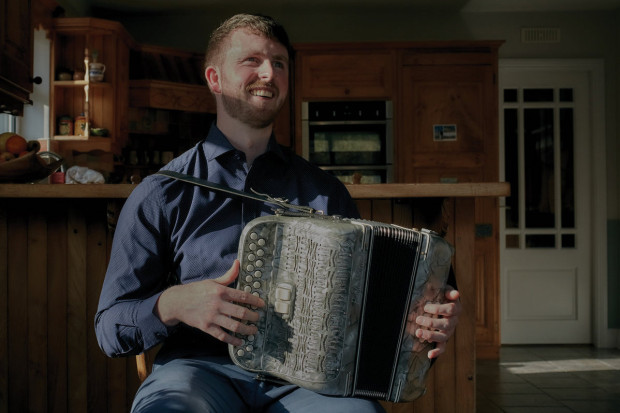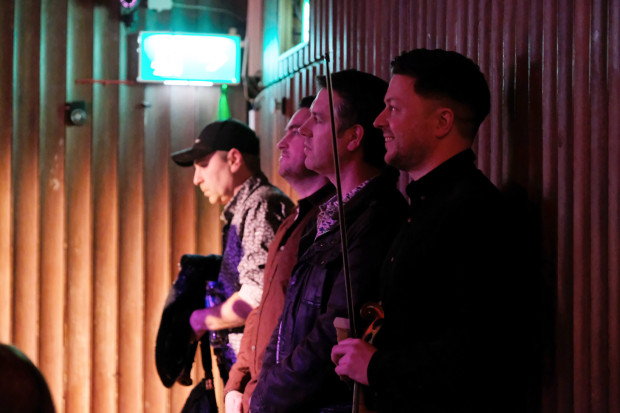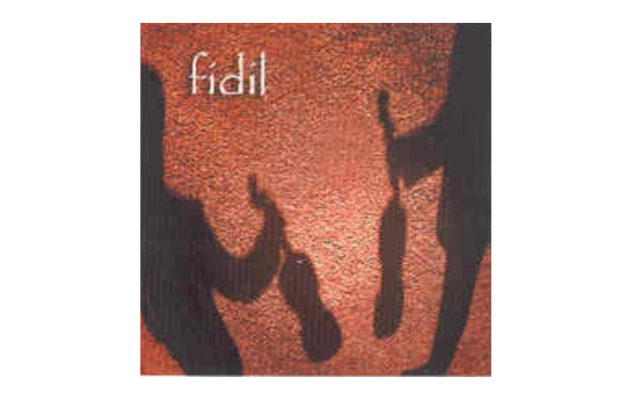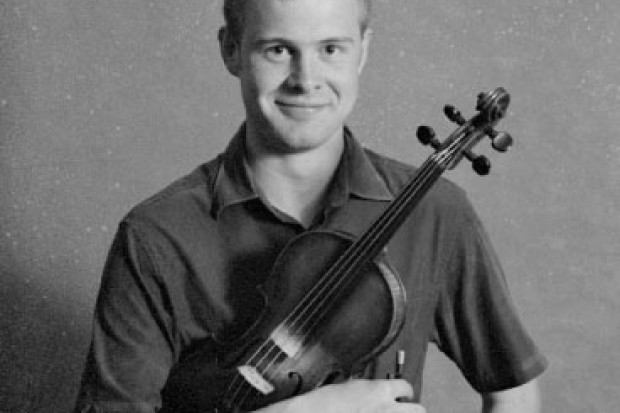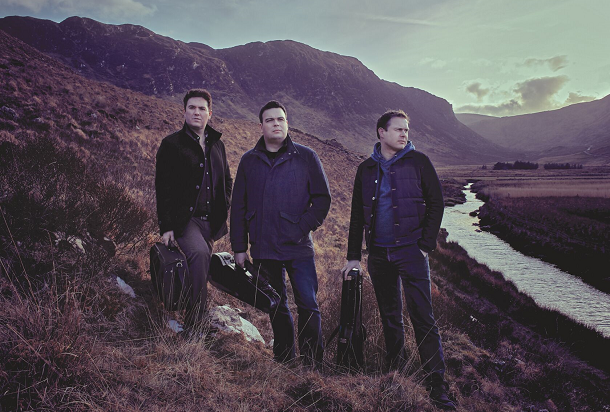
Fidil (Photo: Maurice Gunning)
The Land From Which it Came
‘That’s so Donegal’ is a phrase I have often heard and may be familiar to many listeners of Irish traditional music. Growing up in Tyrone with little direct experience of the style, I became fascinated when I discovered this hotpot where music seemed to exemplify the land from which it came. While the music of my native Tyrone has a slower, more ornamented style of fiddle music, the music of Donegal can be aggressive and fast-paced with an energy present in every double-stopped note and every bowed triplet. Fidil emulate this style in their latest release Decade, their fourth studio album.
Comprising a trio of fiddlers, Aidan O’Donnell from Dunkineely, Ciarán Ó Maonaigh from Gaoth Dobhair and Damien McGeehan from Ardara, Fidil arrived onto the scene in 2008, enchanting listeners with interpretations of music from their homeland. O’Donnell’s graceful style combines with Ó Maonaigh’s powerful use of the bow, and is topped with McGeehan’s embellished melody playing and modernist approach to pizzicato accompaniment to create a signature sound. Original members O’Donnell and Ó Maonaigh were joined by McGeehan for The Old Wheel of Fortune in 2011, their third album which incorporated a more experimental approach with rich layers of harmony. Decade showcases the variety of approaches taken on their recordings to date.
The opening track, a set of reels including ‘The Pinch of Snuff’ and ‘The Wild Irishman’, incorporates ‘reversing’, the practice of playing in octaves, plus double-stopping and drones. This creates a lavish texture, strong bass line and a twinkling descant.
The juxtaposition of high harmonic accompaniment with low drones is cleverly used in the mazurka ‘The First Draft’. A composition of Siobhán Peoples, the orchestral style of fiddle accompaniment with sustained chords allowing the rhythm of the tune to shine through.
Inventive contrast
Fidil employ a wide range of textures despite only three fiddles and no accompanying instrument. In ‘Jenny Jumped Over the Wall’ and ‘Fig for a Kiss’, a set of slip jigs associated with Donegal fiddler Danny O’Donnell, there is a pizzicato introduction. The fiddle accompaniment also includes a steady bass resonance and syncopated strumming patterns, complete with a whispering timbre.
The group also present pieces that have been adopted into the Donegal fiddle tradition, such as ‘The Valetta’ waltz, an English composition. Slight modulations and ‘oom-pah’ accompaniment create an inventive contrast to the Donegal repertoire.
‘Na Farraigí Dearga’ (‘The Seas They Ran Red With Blood’), a descriptive composition by Ó Maonaigh, immediately caught my attention on the album. The eerie setting of the tune reflects the story of Biddy from Muckross in South West Donegal, who, legend has it, received her tunes from fairies. The Donegal fairies told her that they would be going to battle with fairies from Sligo and their defeat was inevitable. When she asked how she would know of their defeat, they told her to look to the sea. The following day the seas ran red with blood. The strumming accompaniment and rhythmic double-stopping carve an image of the dramatic Donegal landscape, and the melancholic drones symbolise the seas, weaving between the intense fast-paced bow rhythms. The use of a tin fiddle in this track creates a unique accompaniment.
The closing track consists of a set of reels, ‘Blest Among Women’, a composition by O’Donnell, and ‘Kitty the Hare’. The first tune begins with solo fiddle but a strong down-beat accompaniment soon enters. A much more flowing style of playing is displayed, with loose ornamentation contrasting with the previous treatment. Their strumming returns, with an almost shaker-like sound created with the bow adding to the musical texture.
This recording highlights the strength of Fidil’s arrangements. Each player breathes new life into the tunes, creating something uniquely ‘Donegal’, a drive which captured my attention from the first track. Fidil possess all the characteristics to be considered representatives and guardians of the Donegal style, but they also create a setting that enhances the traditional tunes, bringing them into an evolving wider music scene.
Decade is released on Raelach Records. To purchase the album, visit raelachrecords.bandcamp.com
This is the fourth review published as part of our new Traditional Music Writer Mentoring Scheme supported by the Arts Council’s Deis traditional arts scheme. Over a number of months the editorial team of the Journal of Music are working with five new writers – Kevin McCullagh, Sadhbh O’Sullivan, Miceál Mullen, Ciara O’Leary Fitzpatrick and Moya Sweeney – and publishing their reviews of traditional music around Ireland.
Read more about our previous Music Writer Mentoring Schemes here.
Published on 27 February 2020










